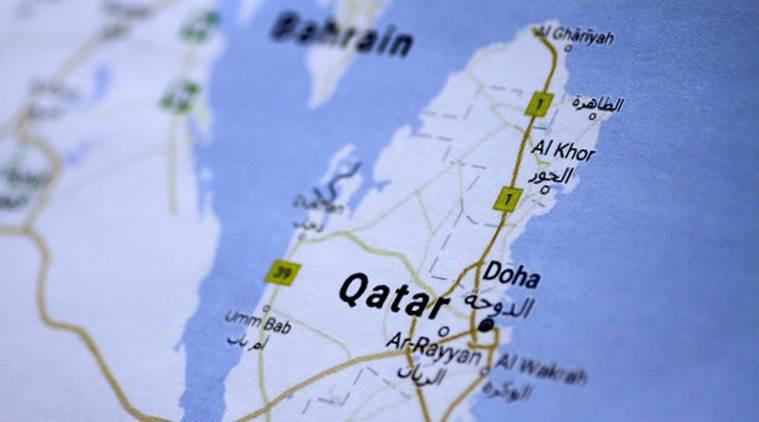Qatar Sanctions: Saudis Riding for a Fall

Qatar Sanctions: Saudis Riding for a Fall
The rift between Qatar and the Saudi Arabia-led front shows signs of widening. Faced with the possibility of Saudis militarily marching in, Qatar has reached out to Turkey. Turkey's parliament has voted post haste to provide troops to Qatar, aborting a possible Saudi invasion. Turkey is still a NATO member, and its siding with Qatar means a major split in the ranks of NATO's West Asian allies.
Qatar has an airlines, a huge roll of cash and, if required, can reach out to Iran and Russia. Saudi Arabia appears to have overplayed its hand; it does not seem to have any further support that it can muster to isolate Qatar any further. Mauritania and Maldives, the two recent additions to the Saudi front, can hardly be taken seriously.
This is first time that the Gulf Cooperation Council (GCC), the oil rich Gulf monarchies have split, even if the tensions between Saudi Arabia and Qatar have existed for some time. While United Arab Emirates (UAE), and Bahrein have sided with the Saudis, Kuwait and Oman have not joined either side, with Kuwait even trying to mediate between the two sides. Trump initially claimed “credit” for the action of the Saudis, he seems to now have gone back, offering even to mediate between the two sides. Perhaps, the Pentagon reminded him that the Al Udeid airbase that houses more than 10,000 US personnel is in Qatar.
The al Saud family are continuing their slide down the slippery slope to oblivion. The recent terrorist attack on Iran seems to have Saudi fingerprints, as it had recently threatened Iran with taking war inside its borders. At the start of the Saudi invasion of Yemen, a number of observers had predicted the end of the Saudi monarchy. Its continued existence is only possible due its huge petrodollar reserves, and faithful western support, paid for by buying huge amount of costly arms; as we saw on Trump's recent visit.
Real war shows that fancy arms an army does not make. This is visible in Yemen. For the last two years, the poorly armed Houthis have shown up the Saudi armed forces time and again. Saudis may have thought flexing its muscles against a tiny Qatar would help it to refurbish its image; the reality –with Turkey pitching in – is that it might tarnish it even further.
The Saudis charge that Qatar is supporting terrorism is laughable. Not because it is wrong but because on that count, Qatar and Saudis are very much together. They have both supported the armed intervention of NATO in support of al Qaeda forces in Libya, and later on, supported al Qaeda and ISIS in Syria. Mehdi Hassan, the Al Jazeera anchor, called this one correctly, as the “pot calling the kettle black”.
The real difference between Qatar and Saudi Arabia is not on its support to al Qaeda and ISIS, but on Qatar's stand on Iran, Israel and Egypt. Qatar has recently called for a dialogue with Iran, and supports Hamas in Palestine against Israel. It had supported Muslim Brotherhood and the Morsi presidency in Egypt, while Saudis had supported the coup led by the current president al Sisi.
It has been well-known that the Saudis, and some of the other Gulf monarchies, work closely with Israel. In the Munich Security Conference in February this year, the Israeli Defence Minister Avigdor Lieberman and the Saudi Foreign Minister Adel al-Jubeir aligned against Iran, using almost identical language. The recent exposure of UAE Ambassador's emails in the US, confirms how closely the Saudis and UAE have been working with Israel to isolate Iran. Clearly, for Saudi Arabia, and the Emiratis, Iran is the enemy and not Israel.
For Saudis, the main irritant has been that though Qatar has aligned with Saudis on Libya and Syria, it has dared to take an independent line on Iran. It is also able to punch well above its weight because of its ownership of Al Jazeera, which still remains as the most popular Arab media. While Al Jazeera has been compromised being too close to Qatari foreign policy, it still has a credibility and reach that none of the Saudi media outlets – such as Al Arabya – can match.
With Turkey entering the fray, the other fault line between tiny Qatar and its much bigger neighbour Saudi Arabia has also become open. The Saudis support Wahhabi version of Islam, an ultra conservative, sectarian school that believes that any one not subscribing to its particular interpretation, is guilty of apostasy or takfir. Al Wahhab, the 18th century founder of the sect, deemed Shiites, Sufis and most other Muslim denominations as not meeting his “strict” definition of Islamic belief and therefore takfir. All such takfirs are deemed not fit to live. This why ISIS and al Qaeda believe that secular persons, Alawites and Christians in Syria should be killed. Those who call others takfirs, are takfiris; ISIS, al Qaeda and the House of Saud are all a part of this takfiri sectarian version of Islam.
While Qatar officially is no different in terms of its support for a conservative view of Islam, it has internally been less repressive. It owns Al Jazeera, which has some autonomy on issues that are not vital for Qatar's foreign policy.. Politically, Qatar has supported Muslim Brotherhood in Egypt, and supports Hamas in Palestine, again a part of the larger Brotherhood. Even though on Syria and Libya, its position has not been very different from that of the Saudis – both have funded various groups that are either al Qaeda/ISIS or allied with them -- it is clear that Saudis will no longer tolerate Qatar's supporting Muslim Brotherhood and a more open Arab media.
Turkey's support for Qatar must be seen in this light. Erdogan's AKP is not only a part of the larger Brotherhood family, it is also its strongest arm. There has been some suspicion that UAE and Saudis played a part of the attempted military coup against Erdogan. This might be also be a reason that Erdogan's Turkey is supporting Qatar is its distrust of Saudis, as well as its unwillingness to hand over the leadership of the Islamic world to Saudis.
Turkey's relationship with the US has deteriorated after the military coup. It appears to be repairing its relationship with the Russians and the Iranians. It now looks a distinct possibility that Turkey will try to play a different role in West Asia than siding with the US and Saudi Arabia. Iran's foreign minister is now to visit Turkey next week to discuss the Qatar crisis. If Saudis continue with their embargoes and sanctions, we could see a radical re-working of the geo-strategic balance in the region.
Disclaimer: The views expressed here are the author's personal views, and do not necessarilyrepresent the views of Newsclick
Get the latest reports & analysis with people's perspective on Protests, movements & deep analytical videos, discussions of the current affairs in your Telegram app. Subscribe to NewsClick's Telegram channel & get Real-Time updates on stories, as they get published on our website.























